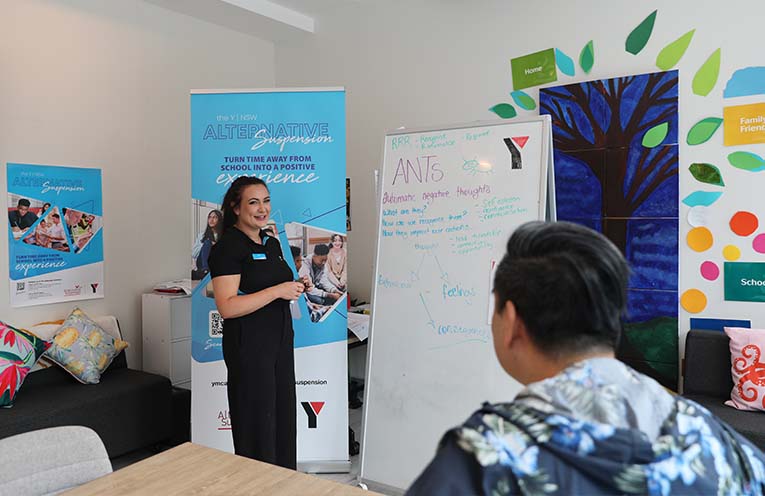
AS youth violence surges and data reveals a troubling correlation between multiple school suspensions and incarcerations, it’s evident that young people facing suspensions represent some of the most marginalised young people in Australia.
A pilot program launched by the Y NSW in February 2023 is offering young people with a pathway to reintegrate back into the school environment successfully.
 Advertise with News of The Area today.
Advertise with News of The Area today.It’s worth it for your business.
Message us.
Phone us – (02) 4981 8882.
Email us – media@newsofthearea.com.au
The program, called Alternative Suspension, aims to transform young people facing suspensions with a positive experience, to foster their autonomy and personal development.
Suspension from school not only disrupts the educational journey of young people, but also perpetuates a cycle of disengagement, leading to marginalisation.
Suspensions fail to address the underlying issues causing disruptive behaviour from the young person and often leads to further alienation from their peers, families, teachers and their academic pursuits.
Louisa McKay, Executive Leader of Purpose and Impact of the Y NSW, explains that managing disruptive behaviours can also be overwhelming for educators, and a catalyst in driving them to leave the profession altogether.
“Asking schools to deal with an issue that is often well beyond their capacity or scope is unfair.
“It’s challenging enough to be a teacher with 30 students, let alone dealing with children and young people creating disruption,” Ms McKay stated.
The Alternative Suspension program stands as a leading example of how to offer young people who have been suspended from school, or are at risk of exclusion, with the support they need.
This support includes skills development, therapeutic support and referrals to additional services they need to successfully re-engage with school and give them a better chance of completing their education.
“We need our systems and policies to have a focus on supporting the whole child, their families and our teachers,” continued Ms McKay.
“We need a focus on supporting the wellbeing of young people rather than using exclusionary practices that further marginalise children and young people.”
The program has been a success, with the Y NSW reporting that 85 percent of its participants learnt new coping, anger management and communication skills as a result.
Upon completion of the program, 94 percent of the cohort of participants returned to school.
“It’s been inspiring to see the incredible outcomes this program has achieved.
The case studies and preliminary evaluation results to date are compelling, according to the Y NSW.
Every week I’m hearing positive stories about the life-changing impact the program is having on young people,” she added.
Continuation of the program is in question however due to grant funding which is set to end in June 2024, and the Y is seeking partnerships to continue and expand this life-changing program to further regions across NSW.
“It’s time to consider doing things differently for children and young people who get suspended or are at risk of being suspended.
“The typical young person who is suspended from school is a thirteen-year-old boy.
“While this is young, it also presents an opportunity to intervene early before the downward spiral begins,” concluded Ms McKay.
To learn more about the Alternative Suspension Program and how to support the Y NSW in their endeavour to improve outcomes for young people, visit www.ymcansw.org.au/community-services/youth/alternative-suspension/
